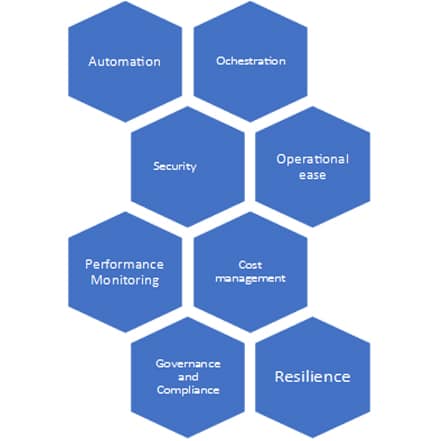Organisations need to build a strategy for managing the data they send to the cloud, since data security and privacy are important. They must also choose the cloud service provider carefully.
Cloud data management is all about the end-to-end process of managing data in the cloud, right from collection to analytics. It includes managing the type, volume and nature of data in a cloud environment. When organisations use public cloud environments for their enterprise data, they need to have a proper strategy since the data is stored in an external data centre. Public clouds are inherently multi-tenant; hence, security and privacy of the data is important. A good data strategy addresses data in transit and data at rest.
Key aspects of data management in the cloud
Data management in the cloud offers the following benefits.
- Collection/Ingestion
- Availability of connectors/APIs that can import data from a variety of sources (databases, files, real-time data, etc). This also includes cleaning the data and handling missing data.
- Integration and transformation
- Ability to map the data and integrate with other data.
- StorageAbility to store data in the right format in an efficient manner.
- Retrieval
- Users are able to read/retrieve the data.
- Security
- Ability to process data in a secured manner for both data at rest and data in transit
- Privacy
- Ability to mask sensitive data.
- Backup and recovery
- Ability to provide automated backups and recovery.
- Metadata management
- Providing good meta data to understand the characteristics of the data stored in the cloud.
- Quality management
- In-built or user-defined quality checks to ensure the integrity of data in the cloud.
- Lineage
- The process and ability to track the source and flow of data over time.
- Catalogue
Key factors to consider when making a cloud data management strategy
- Organisations need to have proper data life cycle management strategies when they are storing their data in the cloud. Public clouds provide both challenges and opportunities. Enterprises that have a clear strategy can benefit by leveraging the cloud services. They must consider the following factors when making that strategy.
- Storage costs
- Choose the right storage format (object/blob storage, low-latency storage, archival storage, disk storage, tape storage, file system, content distribution storage, storage gateways/intermediaries, etc).
Data ingress/egress costs
- Cloud services can have no ingress costs, but have egress costs and vice-versa.
- Rate limits
- There is a limit to simultaneous access and the ability to process the data read/write requests.
- Security
- Whenever data is transferred using the internet, there is a potential security risk. Ensure the data is transferred using a secured tunnel. Use private connections for dedicated data transfer requirements.
- Scaling requirements
- This is the ability to dynamically scale up/down the databases, depending on the demand.
- Meeting data demands/requirements
- Ability to provide consistent data access/API based mechanisms.
- Portability
- Ability to shift from one provider to another.
Framework for cloud data management
While choosing the cloud service provider for their data storage and processing needs, enterprises should have a framework to optimise their returns. As data processing is critical for successfully running the business, the data flow process should be automated. Data pipelines should be triggered and scheduled to run at predefined intervals. Also, the ease of operational use and resiliency should be in-built. The cloud data solution should allow performance monitoring and alerting for various conditions.
Modern cloud data management techniques
AI and ML are being leveraged today for building intelligent data pipelines. AI powered meta-data and intelligent systems can help to infer schema intelligently, allow data discovery, and perform automated data quality checks. AI powered data management solutions can also help with glossary associations, knowledge graphs, curated recommendations, guided navigation and automated data lineage
Other innovative solutions include persona-based data access, which includes data stewards, curators, data quality professionals and admins.
Conclusion
Providing trusted, contextual and quality master data is fundamental for data management. Data observability, self-tuning, self-healing, smart scheduling and scalable resource allocation can help to meet dynamic data management requirements in the cloud. The data marketplace, which provides useful and curated data assets, is the future of cloud data management.










































































